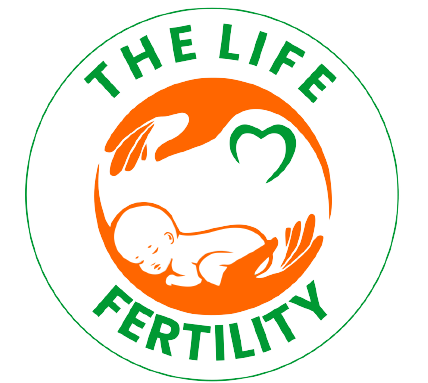Polycystic ovary syndrome (PCOS) is a prevalent hormonal disorder that impacts numerous women globally. It is distinguished by the development of cysts on the ovaries, irregular menstrual cycles, and elevated levels of androgens (male hormones) within the body.. PCOS can have a significant impact on a woman’s diet and weight management, as it can lead to insulin resistance and difficulties in maintaining a healthy weight.
In this article, we will explore the relationship between PCOS and diet, and discuss various strategies for managing PCOS symptoms through dietary changes.
Table of Contents
Understanding PCOS and its impact on diet
PCOS is a complex condition that affects multiple aspects of a woman’s health, including her diet. The exact cause of PCOS is still unknown, but it is believed to be influenced by a combination of genetic and environmental factors. Common symptoms of PCOS include irregular or absent periods, excessive hair growth (hirsutism), acne, and weight gain. The severity of these symptoms may differ among women.
When it comes to diet, women with PCOS often struggle with weight management due to hormonal imbalances and insulin resistance. Insulin resistance is a condition where the cells in the body become less sensitive to the hormone insulin, which plays a crucial role in controlling blood sugar levels. Consequently, the body compensates by producing more insulin, resulting in elevated levels of insulin in the bloodstream. This can contribute to weight gain and make it more difficult for women with PCOS to lose weight.
The role of insulin resistance in PCOS and diet
Insulin resistance plays a crucial role in PCOS and can have a significant impact on a woman’s diet. When the body becomes resistant to insulin, it becomes harder for glucose (sugar) to enter the cells and be used for energy. As a result, the body produces more insulin to try to compensate for this resistance. High levels of insulin can lead to increased hunger and cravings for sugary and high-carbohydrate foods, which can further contribute to weight gain.
Diet plays a crucial role in managing insulin resistance in PCOS. By making certain dietary changes, women with PCOS can help improve their insulin sensitivity and manage their weight more effectively. One of the key strategies is to focus on consuming low-glycemic index (GI) foods, which have a slower and more gradual impact on blood sugar levels. Some examples of foods that are beneficial for a diet focused on managing PCOS symptoms are whole grains, legumes, fruits, and vegetables. By choosing low-GI foods, women with PCOS can help stabilize their blood sugar levels and reduce insulin resistance.
Foods to avoid for PCOS management
| Processed Foods | High in refined carbohydrates and added sugars, which can cause insulin resistance and worsen PCOS symptoms |
| Sugary Drinks | Contain high amounts of added sugars and can cause insulin resistance and weight gain |
| Red Meat | High in saturated fats, which can increase inflammation and worsen insulin resistance |
| Dairy Products | Contain hormones that can disrupt the endocrine system and worsen PCOS symptoms |
| Gluten | May cause inflammation and worsen insulin resistance in some people with PCOS |
| Soy Products | Contain phytoestrogens that can disrupt hormone balance and worsen PCOS symptoms |
In addition to incorporating low-GI foods into their diet, women with PCOS should also be mindful of certain foods that can worsen their symptoms. These include highly processed and refined carbohydrates, such as white bread, white rice, and sugary snacks. These foods have a high glycemic index and can cause a rapid spike in blood sugar levels, leading to increased insulin production and worsening of PCOS symptoms.
It is also important for women with PCOS to limit their intake of saturated fats and trans fats, as these fats can contribute to inflammation in the body. Foods high in saturated fats include fatty cuts of meat, full-fat dairy products, and fried foods. Trans fats are commonly found in processed snacks, baked goods, and margarine. By reducing the consumption of these unhealthy fats, women with PCOS can help manage inflammation and improve their overall health.
The Importance of Fiber in PCOS diet
Fiber is an essential nutrient that plays a crucial role in managing PCOS symptoms. It helps regulate blood sugar levels, promotes healthy digestion, and aids in weight management. Women with PCOS should aim to include plenty of high-fiber foods in their diet, such as whole grains, fruits, vegetables, and legumes.
Fiber helps slow down the absorption of sugar into the bloodstream, preventing rapid spikes in blood sugar levels. This can help improve insulin sensitivity and reduce the risk of developing type 2 diabetes, which is more common in women with PCOS. Additionally, fiber adds bulk to the diet, promoting feelings of fullness and reducing overeating. This can be particularly beneficial for women with PCOS who struggle with weight management.
The Benefits of a Low Glycemic Index Diet for PCOS
A low glycemic index (GI) diet is often recommended for women with PCOS due to its potential benefits in managing insulin resistance and weight management. The glycemic index is a scale that ranks foods based on how quickly they raise blood sugar levels. Foods with a high GI value cause a rapid spike in blood sugar, while foods with a low GI value have a slower and more gradual impact.
By choosing low-GI foods, women with PCOS can help stabilize their blood sugar levels and reduce insulin resistance. This can lead to improved weight management and better overall health. Low-GI foods include whole grains, legumes, fruits, and vegetables. These foods provide sustained energy and are rich in essential nutrients, making them an excellent choice for women with PCOS.

The Role of Protein in PCOS Diet
Protein is an essential nutrient that plays a crucial role in managing PCOS symptoms. It helps promote satiety, supports muscle growth and repair, and aids in weight management. Women with PCOS should aim to include plenty of high-protein foods in their diet, such as lean meats, poultry, fish, eggs, dairy products, legumes, and tofu.
Protein needs more energy to digest and metabolize than fats or carbohydrates because it has a higher thermic effect. This can help boost metabolism and promote weight loss or maintenance. Additionally, protein helps promote feelings of fullness and can help reduce cravings for unhealthy snacks. By including adequate protein in their diet, women with PCOS can support their weight management efforts and improve their overall health.
The Benefits of Omega-3 Fatty Acids for PCOS Management
Omega-3 fatty acids are a type of polyunsaturated fat that has been shown to have numerous health benefits, including reducing inflammation, improving heart health, and supporting brain function. For women with PCOS, omega-3 fatty acids can also play a role in managing symptoms and promoting overall well-being.
Omega-3 fatty acids have been found to help regulate menstrual cycles and reduce the severity of PCOS symptoms such as acne and hirsutism. They also have anti-inflammatory properties, which can help reduce inflammation in the body and improve insulin sensitivity. Good sources of omega-3 fatty acids include fatty fish like salmon and mackerel, walnuts, flaxseeds, and chia seeds. By incorporating these foods into their diet, women with PCOS can reap the benefits of omega-3 fatty acids and support their overall health.
The Impact of Caffeine and Alcohol on PCOS Symptoms
Caffeine and alcohol are two substances that can have a negative impact on PCOS symptoms and should be consumed in moderation or avoided altogether. Caffeine is a stimulant that can increase cortisol levels (the stress hormone) in the body, which can disrupt hormonal balance and worsen PCOS symptoms. It can also interfere with sleep quality, which is important for overall health and hormone regulation.
Alcohol, on the other hand, can affect liver function and interfere with hormone metabolism. It can also contribute to weight gain due to its high calorie content and its impact on blood sugar levels. Women with PCOS should be mindful of their caffeine and alcohol intake and consider reducing or eliminating these substances from their diet to help manage their symptoms effectively.
The Benefits of Herbal Supplements for PCOS Management
In addition to dietary changes, certain herbal supplements have been found to be beneficial for managing PCOS symptoms. These supplements can help regulate menstrual cycles, reduce androgen levels, and improve insulin sensitivity. However, it is important to note that herbal supplements should be used under the guidance of a healthcare professional, as they can interact with medications and may not be suitable for everyone.
Some commonly used herbal supplements for PCOS management include cinnamon, spearmint tea, saw palmetto, and berberine.Cinnamon has been demonstrated to enhance insulin sensitivity and help control blood sugar levels. Spearmint tea has anti-androgenic properties and can help reduce excessive hair growth in women with PCOS. Saw palmetto is often used to reduce androgen levels, while berberine has been shown to improve insulin sensitivity and regulate menstrual cycles. Before starting any herbal supplement, it is important to consult with a healthcare professional to ensure safety and effectiveness.
The Importance of Meal Planning for PCOS Diet
Meal planning is an essential tool for women with PCOS who are looking to manage their symptoms effectively. By planning meals in advance, women with PCOS can ensure that they are consuming a balanced diet that supports their health goals. Meal planning can also help save time and money, reduce food waste, and prevent impulsive food choices.
When meal planning for PCOS, it is important to focus on incorporating a variety of nutrient-dense foods that support hormonal balance and weight management. A well-balanced diet for managing PCOS should consist of lean proteins, whole grains, a variety of fruits and vegetables, and sources of healthy fats. By having a well-rounded meal plan in place, women with PCOS can take control of their diet and make choices that support their overall health.
Tips for maintaining a healthy PCOS diet while eating out
Eating out can present challenges for women with PCOS who are trying to maintain a healthy diet. However, with some planning and mindful choices, it is possible to make healthy choices while dining out. Here are some tips to help navigate menus and make informed choices:
1. Research the menu in advance: Many restaurants now provide their menus online, allowing you to review the options and make a healthier choice before arriving.
2. Choose grilled or baked options: Opt for grilled or baked proteins instead of fried or breaded options. One way to lower the consumption of harmful fats and calories is by incorporating this method into your diet, especially for those with PCOS.
3. Ask for modifications: Don’t be afraid to ask for modifications to your meal, such as substituting fries for a side salad or requesting dressing on the side.
4. Control portion sizes: Restaurants often serve large portions, so consider sharing a meal with a friend or asking for a takeout container to save half for later.
5. Be mindful of sauces and dressings: It’s important to be mindful of the high sugar and unhealthy fat content in various sauces and dressings. To manage your diet effectively, consider requesting these condiments on the side and using them in moderation. This approach can be beneficial for individuals with PCOS looking to make healthier choices.
By being mindful of your choices and making small adjustments, you can still enjoy eating out while maintaining a healthy PCOS diet.
Conclusion
In conclusion, PCOS can have a significant impact on a woman’s diet and weight management. By understanding the relationship between PCOS and diet, women with this condition can make informed choices that support their overall health and well-being. Incorporating low-GI foods, fiber-rich foods, lean proteins, and omega-3 fatty acids can help manage insulin resistance, promote weight management, and reduce inflammation.
Avoiding or limiting caffeine and alcohol intake can also help manage PCOS symptoms effectively. Additionally, meal planning and making mindful choices while eating out can further support a healthy PCOS diet. Through implementing alterations to their eating habits, individuals diagnosed with PCOS have the ability to manage their well-being and enhance their overall lifestyle.




